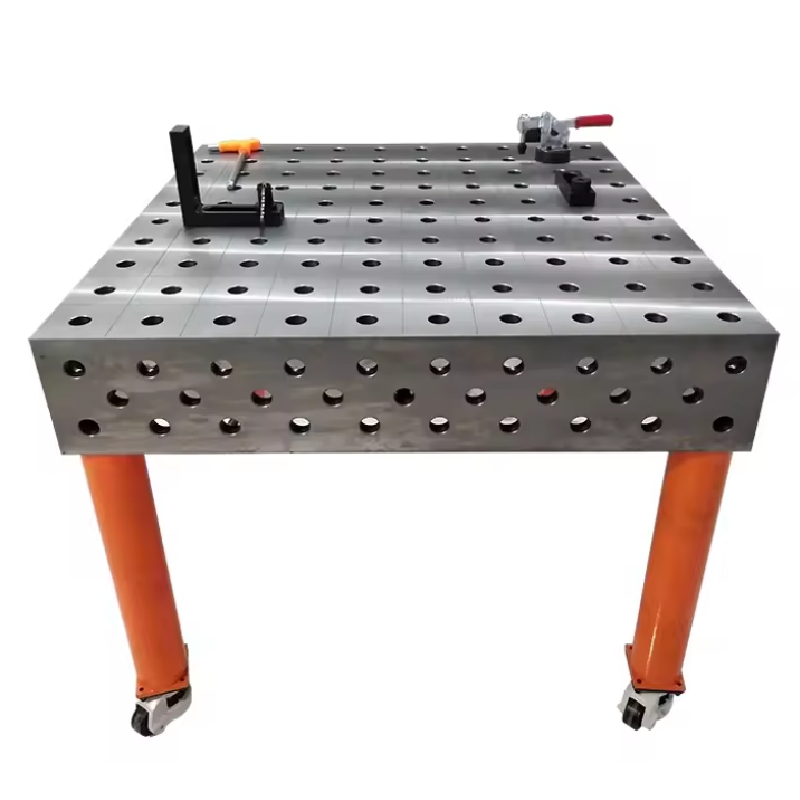نوفمبر . 03, 2024 02:49 Back to list
cast iron surface table
The Importance of Cast Iron Surface Tables in Precision Engineering
In the realm of precision engineering, the significance of a cast iron surface table cannot be overstated. These flat, stable, and robust structures are crucial for a variety of machining and manufacturing processes. Cast iron surface tables provide a reliable foundation for measuring and supporting workpieces, ensuring optimal accuracy in both layout and assembly.
One of the primary advantages of cast iron surface tables is their inherent stability. Cast iron is known for its high rigidity and resistance to deformation, which is essential when conducting precise measurements. The dense nature of cast iron minimizes the effects of thermal expansion, allowing engineers to maintain consistent measurements over varying temperatures. This characteristic makes cast iron surface tables particularly suitable for environments where temperature fluctuations can occur.
Moreover, the machining of cast iron surface tables provides a perfectly flat reference plane. The flatness of these tables is measured to comply with strict standards, allowing for unparalleled accuracy. Engineers and machinists rely on this precision to perform intricate tasks such as alignment, setup for machining operations, and inspection of components. A high-quality surface plate can mean the difference between a successful project and costly errors.
cast iron surface table

Aside from their functionality, cast iron surface tables are also designed for durability. These tables are resistant to wear and damage from mechanical operations, making them a long-term investment for any workshop or industrial setting. The protective coatings applied to these tables further enhance their longevity, preventing rust and corrosion which can degrade performance over time.
Another interesting feature of cast iron surface tables is their versatility. They can be used in various applications, including automotive, aerospace, and manufacturing sectors. Whether for inspecting components, assembling parts, or conducting quality control checks, these tables provide a reliable surface for an array of engineering tasks.
It's also worth mentioning that cast iron surface tables often come with additional features such as T-slots and leveling adjustments, which enhance their usability. T-slots allow for the quick installation of clamps and fixtures, facilitating easier setup for various machining operations. Leveling screws enable precise adjustments to ensure the table is perfectly horizontal, essential for achieving accurate results.
In conclusion, the role of cast iron surface tables in precision engineering is invaluable. Their stability, durability, and versatility make them indispensable tools in the manufacturing process, ensuring that high standards of accuracy are met. Investing in a quality cast iron surface table is a decision that pays dividends in the long run, paving the way for enhanced performance and efficiency in engineering operations. As industries continue to evolve, the reliance on such foundational tools will remain a cornerstone of successful manufacturing and assembly practices.
-
Precision Manufacturing with Advanced Spline Gauge DesignNewsJul.31,2025
-
Industrial-Grade Calibrated Pin Gauges for Exact MeasurementsNewsJul.31,2025
-
Industrial Filtration Systems Depend on Quality Filter DN50 SolutionsNewsJul.31,2025
-
High-Performance Gate Valve WholesaleNewsJul.31,2025
-
Granite Surface Plate The Ultimate Solution for Precision MeasurementNewsJul.31,2025
-
Granite Industrial Tools The Ultimate Guide for Bulk BuyersNewsJul.31,2025
Related PRODUCTS









